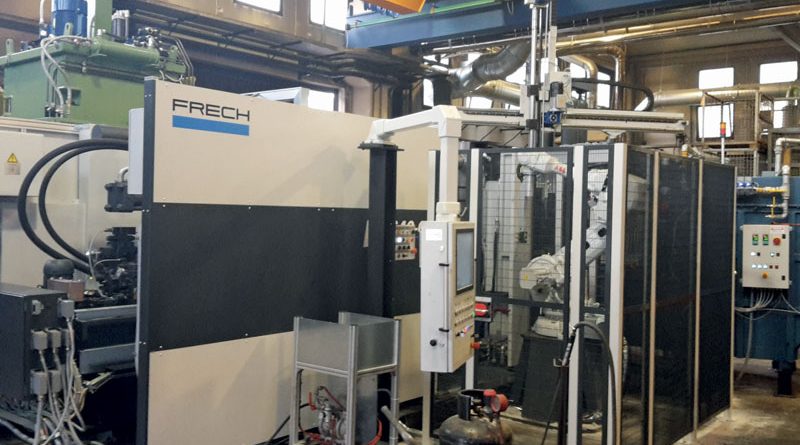A New Frech Die Casting Cell for Gilardoni in Abbadia Lariana
The new plant strengthens the Group’s casting production capacity, mainly targeted at foreign markets
by Alberto Pomari
On Lake Como, in Abbadia Lariana (near Lecco), Flavio Gilardoni has managed successfully since 1961 two family businesses operating in the very dynamic area of die casting: Gilardoni Flavio Srl, a die manufacturing company, and, very close to it, the Fonderia Cesar.
We met Ivo Gaddi and Luca Negri, respectively son-in-law and brother-in-law of Flavio Gilardoni; the former is the manager of the sales department of Gilardoni Flavio Srl, the second manages, along with the owner, the technical aspects of the Cesar foundry, and we asked them to explain how the activity of the two companies is developing in such a competitive market as die casting, which is going through a very positive period on account of the good performances of the automotive industry.
First of all, how many employees work in your factories and for which main markets are you working?
Regarding the size of our company, altogether in the two companies we have 60 employees, we work at full capacity especially at the Cesar foundry, where we work on three shifts. 30% of our production is meant for the Italian market, the remaining 70% concerns order coming from abroad where during the years we built up a good reputation both as regards quality and reliability of our service. Our clients are active in several industries, mostly automotive and motorcycle, but even in the electric and electrotechnical segments, in the lighting industry and in constructions in general.
What die casting machines and equipment do you use?
Our foundry is equipped with six completely automatic die casting cells with a closing force of up to 700 tons. At the beginning of May the new Oskar Frech K 640 die casting cell became operational. We made this choice, which for us has an important strategic value, firstly because the Frech approach, which implies purchasing the entire plant from a single supplier, convinced us completely. It is clear that for us this has the great advantage of having an entire project group at our service and dedicated reference persons whom we can turn to with our questions. But an essential factor in our decision was also the technical service issue, which Frech guaranteed by means of technicians on site. Even this issue is vital for us, because it is a fact that our plants must carry on working uninterruptedly to fulfil the supply obligations with our clients, so in case of maintenance we absolutely need to find a fast and immediate solution.
Therefore, not just quality, but also great attention to service and flexibility, which normally characterize Italian companies in this industry Indeed, and all the more so for companies such as ours which work a lot with foreign markets, since we are a family concern, we know very well the advantages of management methods which focus on partnership with clients, on a close relationship with suppliers, on a continuous and timely development of products and of course on a healthy corporate structure. On a very different scale, but with the same spirit, we find all of this in Oskar Frech, which has been on the market since 1949 and is currently managed by the fourth generation of entrepreneurs in the family.
You are at the same time a foundry and a die manufacturer. Doesn’t this to some extent imply conflicting interests with your clients, who are, at least in some cases, foundries themselves?
Not at all, since our clients actually consider us a form of outsourcing, a sort of detached production unit, it is very frequent for our clients, die makers themselves, to ask us to manufacture samples of their die in our foundry. I would say that for the very reason that we manufacture dies but also produce die castings, we represent a great opportunity for our clients, since we can guarantee the required quality level both as regards the die and the item manufactured.
As Italian die manufacturers how can you tackle foreign competition especially from a price policy standpoint?
Regarding prices undoubtedly we cannot compete against the Far East, but this is not an issue for us as die manufacturers. Our clients know that a poorly designed die blocks the entire project and that every die is unique, it is not possible to have a standard process because each die is one of a kind. It takes a great experience and knowledge, beginning with the quality of materials, which steel for hot machining, which alloy should be chosen, which heat treatments did it undergo, etc. What sense would it make for a client when signing a contract with, for instance, a Chinese supplier, to save a certain sum of money, if the supplier lacks the necessary technical knowledge and therefore in the long term sooner or later severe technical problems will arise which would turn into an irretrievable economic loss? This is something which well-informed clients know well.
Let us conclude with a brief mention of “Industry 4.0”, an issue which has been much debated during the past few years and which every company now needs to tackle. What does Industry 4.0 mean to Flavio Gilardoni?
We can say this in brief, for us it means controlling the entire production process, that is, the management and analysis of all data from management to finished products. Another aspect is the optimal programming of machines at any given time.

